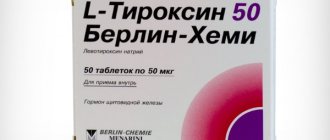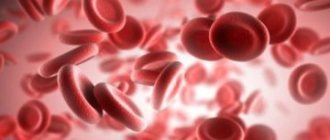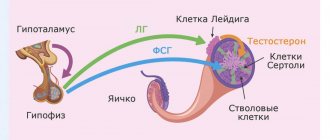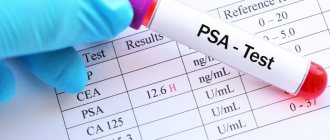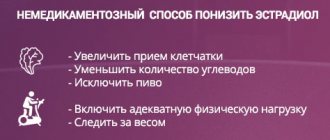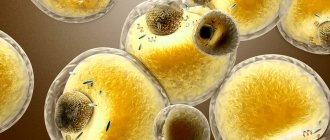What is the T3 hormone responsible for?
T3 hormone is a thyroid hormone and is the more active of the two main hormones. You can find another name for it – triiodothyronine. The presence of the number three in the definition of a hormone is explained by the fact that each of its molecules contains exactly that amount of iodine.
T3 is formed as a result of the breakdown of another hormone - T4, when one iodine atom is split off from it. The process that occurs after the splitting of an atom can be compared to the process of removing the pin from a grenade. The transformed, previously sedentary T4, having transformed into triiodoitrine, becomes very active.
Its purpose is to control the energy metabolic processes occurring in the human body. The hormone influences the breakdown of energy and sends it to where it is needed. Once in the bloodstream into the cells of the child’s brain, the hormone promotes its rapid development. Thanks to the work of triiodothyronine, nerve conduction is enhanced in an adult.
Triiodothyronine is important for the cardiac system and bone tissue, as it helps activate metabolism in them. General nervous excitability increases under the influence of triiodothyronine.
- Signs of elevated T3 levels
- Difficulties in conducting analysis
Reduced T3 content
When the synthesis of hormones in the thyroid gland is disrupted, a condition occurs when the levels of free triiodothyronine are below normal. The following pathological conditions can cause such disorders:
- surgical intervention on the thyroid gland to completely or partially remove it;
- autoimmune thyroiditis, in which an incorrect immune response of the body occurs to destroy its own thyroid cells responsible for the synthesis of hormonal substances;
- condition after a course of treatment with radioactive iodine prescribed for diffuse toxic goiter;
- consequences of treating diffuse and nodular changes in the thyroid gland with thyrostatic drugs that can cause hypothyroidism if the dosage is incorrectly selected;
- side effects from the treatment of other concomitant diseases with drugs containing significant concentrations of iodine.
With a decrease in the production of important hormonal substances of the thyroid gland, a certain sequence is observed, which is important for diagnosing this pathological condition. At the first stage of the disease, the level of the hormone T4 in the patient’s blood first decreases, after which T3 also decreases. This effect is explained by the fact that the body initially tries to compensate for the lack of hormonal substances through triiodothyronine, since its activity is many times higher than that of T4. A kind of conversion of one substance into another occurs in order to smooth out the negative manifestations of hypothyroidism as far as possible.
Thus, if, when interpreting test results, a low triiodothyronine content is revealed, but T4 and TSH retain their normal values, then there is a laboratory error. In such cases, it is necessary to recheck the results in another clinic specializing in endocrinology. Such institutions are equipped with special immunochemiluminescence laboratories, the examination in which ensures the high quality of the tests performed. Samples are taken using vacuum systems, which make this procedure as comfortable as possible for patients of any age.
T3 hormone is free and total - what is the difference?
A certain amount of triiodothyronine can be produced by gland cells in an already “ready” state, that is, with 3 iodine atoms. Once in the bloodstream, it communicates with transporter protein molecules. The hormone is transported through the vessels to the tissues that need it. But a small amount of triiodothyronine remains in the blood, unbound to protein molecules. This triiodothyronine is called “free T3 hormone.”
The hormone that remains free in combination with the one that is bound to proteins is defined as the total hormone T3. It is its quantity that is often indicative of questionable results of tests for free hormone, which are carried out to determine thyroid dysfunction in humans.
[Video] Doctor MD Mikhail Yurievich Bolgov, a surgeon of the highest category, will explain the difference between the total and free hormone T3. The features of its action and use in diseases of the thyroid gland are highlighted:
Which one to take - general or free?
The doctor decides which test is best. You can get a referral for it from a therapist, pediatrician or endocrinologist. The form will necessarily indicate the type of hormone.
Donating blood to check the level of free T3 is necessary for diseases of the thyroid gland, or to determine the effectiveness of hormonal therapy. An assessment of total T3 levels is required when diagnosing hypothyroidism or thyrotoxicosis. However, the best option is to take both tests.
What kind of hormone is this
The thyroid gland produces triiodothyronine in small quantities. However, this substance is considered the main hormone of all, which is synthesized by this gland.
The amount of triiodothyronine plays the role of an indicator of the condition of the thyroid gland and the whole body. This substance performs important functions in the body. After entering the blood, it can be in two states - general and free.
General triiodothyronine is the state of a substance that has been combined with proteins. This is how it moves to the tissues of the body.
However, triiodothyronine is always present in the blood, which has not yet interacted with proteins or has already been freed from this bond. It's called free. The amount of free substance is the main indicator, since it performs its functions only in this state.
The thyroid gland produces triiodothyronine in small quantities. However, this substance is considered the main hormone of all, which is synthesized by this gland.
What is T3 free responsible for?
Any hormone is involved in the humoral regulation of the body and performs several functions at once. Free triiodothyronine is no exception. It performs the functions:
- activation of oxidative processes;
- maintaining optimal body temperature;
- activation of protein metabolism;
- an increase in the amount of glucose in the blood;
- stimulating the formation of vitamin A in the liver;
- increased heart contractions;
- activation of intestinal motility;
- stimulation of red blood cell formation;
- removing toxins from the blood.
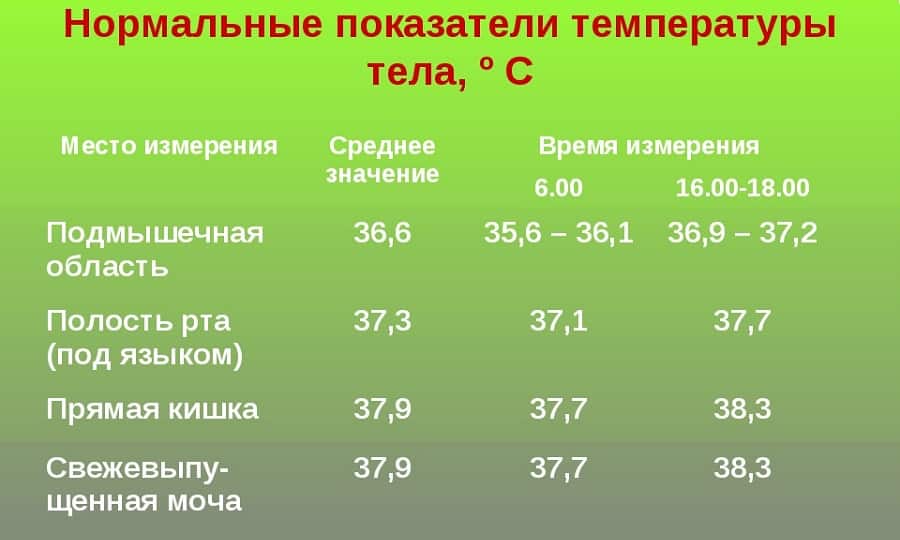
One of the functions of free triiodothyronine is to maintain optimal body temperature.
T3 hormone test
When determining pathological conditions of the thyroid gland, the endocrinologist necessarily sends the patient to take tests for three hormones - T4, TSH, T3. Testing for the latter type of hormone is extremely important, as it allows minimizing diagnostic error.
For example, with nodular toxic goiter, very often independently working nodes are engaged in the reproduction of the T3 hormone. Its amount also increases in diffuse toxic goiter, Graves' disease and Graves' disease. If the analysis produces a result that shows a significant increase in triiodothyronine, then doctors talk about T3 toxicosis. This condition is difficult to correct with drugs and manifests itself with more vivid symptoms than those found with an increase in the amount of the T4 hormone.
Analysis
A blood test shows the concentration of triiodothyronine (T3) in the patient's blood (pmol/L).
A test for free T3 levels is prescribed by a therapist, endocrinologist, gynecologist or reproductive specialist in the following situations:
- when detecting abnormalities in the functioning of the thyroid gland;
- at the stage of pregnancy planning;
- when searching for the causes of infertility in men and women;
- to assess the quality of hormone replacement therapy and monitor the effectiveness of treatment;
- to clarify the indicators of clinical laboratory studies that have recorded deviations in the level of other hormones produced by thyroid cells;
- with T3 toxicosis to control the level of triiodothyronine over time.
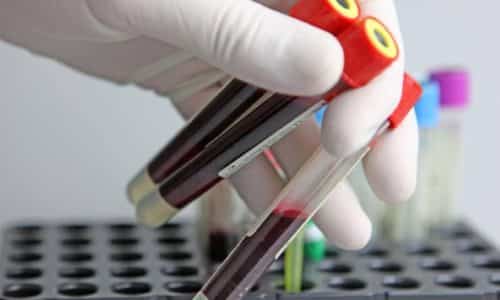
A blood test shows the concentration of triiodothyronine (T3) in the patient's blood (pmol/L).
Biological material for research is venous blood. To obtain reliable results, it is recommended to strictly adhere to the following rules:
- blood is donated in the morning on an empty stomach;
- a month before the study, stop taking hormonal medications;
- a few days before the collection of biomaterial, additional physical activity is excluded (exercise in the gym, running, lifting weights, etc.);
- it is necessary to refrain from drinking alcohol several days before the test;
- Smoking is contraindicated three hours before taking biomaterial.
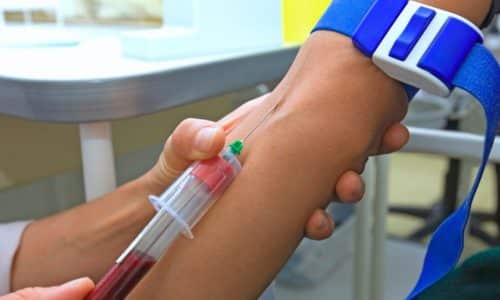
Biological material for research is venous blood.
Norm of T3 hormone
The norm of total hormone T3:
| Age | Norm in Nmol/l | Norm in ng/dl | Norm in ng/ml |
| 4 months | 1,23 — 4,22 | 80 — 275 | 0,80 — 2,75 |
| 4 months - 1 year | 1,32 — 4,07 | 86 — 265 | 0,86 — 2,65 |
| 17 years | 1,42 — 3,80 | 92 — 247 | 0,92 — 2,47 |
| 7 – 12 years | 1,43 — 3,55 | 93 — 231 | 0,93 — 2,31 |
| 12 – 20 years | 1,40 -3,34 | 91 — 217 | 0,91 — 2,17 |
| 20-50 years | 1,2 — 3,1 | 78 — 201 | 0,78 — 2,01 |
| 50 years | 0.62 to 2.79 | 40 — 181 | 0,40 — 1,81 |
To convert total T3 from nmol/L to ng/mL, multiply the number by 0.651: (nmol/L) x 0.651 = ng/mL.
To convert ng/ml to nmol/l, multiply the number by 1.536: (ng/ml) x 1.536 = nmol/l.
The norm of free hormone T3:
| Age | Floor | Norm in pmol/l | Norm in pg/ml |
| In the first year | Both | 3,5 – 7, 35 | 2,28 – 7,78 |
| 1 – 12 years | 4,1 – 6,5 | 2,67 – 4,23 | |
| 12 – 16 years old | Man | 4,3 – 6,8 | 2,8 – 4,43 |
| Woman | 3,7 – 6,3 | 2,4 – 4,1 | |
| 16 – 18 years old | Man | 3,4 – 6,2 | 2,21 – 4,04 |
| Woman | 3,7 – 5,7 | 2,4 – 3,71 | |
| 18 years | Both | 2,5 – 5,7 | 1,63 – 3,71 |
If the values on your form are indicated in pg/ml, then simply multiply them by 1.536: (pg/ml) x1.536 = pmol/l. To convert the numbers the other way around: (pmol/l) x0.651 = pg/ml.
It must be said that these standards may differ from those that you receive in the laboratory. The fact is that, depending on what equipment the hormone test is performed on, the normal values will vary. Each specific laboratory makes a choice in favor of one or another apparatus and set of reagents. Therefore, the quantity will be considered normal if the results obtained fall within the reference limits indicated on a specific form from a particular laboratory.
What does elevated T3 hormone mean?
Free T3 increases if a person has problems with the thyroid gland. The most common of them:
- Multinodular or diffuse toxic goiter develops with isolated T3 toxicosis. Without treatment, the levels of all thyroid hormones will increase, but in the early stages of these diseases, only T3 increases, and T4 remains normal.
- Inflammation of the thyroid gland caused by autoimmune diseases, infection or childbirth.
- Thyroid cancer. Tumors are capable of producing substances similar in structure to hormones, so T3 levels will be increased.
- Endemic goiter caused by iodine deficiency. The proliferation of thyroid tissue provokes an increase in T3 levels.
- Pendred's disease. This is a congenital disease associated with genetic disorders. It gives several symptoms, one of which is an enlarged thyroid gland and hyperthyroidism.
- Resistance to thyroid hormones.
An increase in T3 levels can be caused by nephrotic syndrome, choriocarcinoma, myeloma, and hemodialysis.
In older people, the level of the T3 hormone may be reduced due to existing diseases of the internal organs. In this case, the values of the T4 hormone will remain within normal limits. In this case, the changes detected in the analysis do not indicate damage to the thyroid gland.
Signs of elevated T3 levels
Due to the fact that T3 is an extremely active hormone, its increase in the blood causes a number of very pronounced symptoms:
- The patient becomes overly irritable, nervous, quickly becomes enraged and excited. Against this background, the patient is constantly haunted by fatigue. Doctors sometimes refer to this set of symptoms as irritable weakness;
- Tremor of the fingers on the upper extremities is another common sign of increased triiodothyronine;
- The patient's pulse quickens, symptoms of tachycardia are observed, and disturbances in the heart rhythm occur. Extrasystole is a symptom of increased hormone. This condition is characterized by an increase in the number of heart contractions with a long period of rest. A person feels these disturbances and often complains to the doctor about “interruptions” in the functioning of the heart;
- Loss of body weight is often noted.
Functions and role in the body
Thanks to the peripheral tissues of the thyroid gland, an iodine molecule is separated from T4, converting it into active T3. Another 20% of triiodothyronine is synthesized by the gland separately. About 0.5% of the hormone entering the blood remains in free form.
Free T3 performs certain functions in the body:
- controls the amount of cholesterol in the blood,
- nourishes tissues with energy and oxygen,
- provides a normal temperature for the body’s vital functions,
- promotes the excretion of calcium salts by the kidneys,
- participates in the synthesis of vitamin A by the liver,
- accelerates protein and carbohydrate metabolism,
- improves the process of restoration of bone structures,
- takes part in the process of embryo formation in pregnant women.
When the level of free T3 deviates from the norm, a person’s general well-being suffers. The balance of other thyroid hormones is disrupted. All this becomes the impetus for the development of pathological changes that are dangerous to health. In children, physical and mental development is strongly related to the production of thyroid hormones. If their synthesis is disrupted, central nervous system diseases develop and the child’s growth slows down.
What does the CA 125 tumor marker show and for what symptoms is it necessary to take the test? We have the answer!
Read about the first signs of inflammation of the thyroid gland and methods of treating the disease at this address.
Diseases leading to a decrease in the T3 hormone
A decrease in triiodothyronine levels is observed when the production of all hormones produced by the thyroid gland is disrupted. This condition occurs in serious diseases:
- There is such a disease - Hashimoto's thyroiditis, when a person's own immunity begins to destroy some of the cells of the thyroid gland. These cells cannot be restored and in most cases cease to function and produce hormones forever.
- Hypothyroidism. This condition often develops while taking certain drugs used to treat diffuse and nodular toxic goiter. Potentially dangerous drugs include thyreostatics such as: Propicil, Tyrosol, Mercazolil.
- Triiodothyronine levels may be reduced when surgery has been performed to remove either the entire thyroid gland or a specific part of it.
- The level of T3 decreases while a person undergoes treatment with radioactive iodine. Such therapy is carried out when it is necessary to rid the patient of diffuse toxic goiter.
- A drop in hormone production is observed when taking medications containing significant amounts of iodine. Among these are cordarone, amiodarone and others.
It is worth knowing that hormones do not decrease in a chaotic manner. The level of the T4 hormone always drops first and only after that the normal value of triiodothyronine decreases. This condition is caused by the activity of the body. When the T3 hormone drops, it tries to hedge its bets and, as it were, transfers “cash into freely convertible currency,” because triiodothyronine is almost 10 times more active than T4. Doctors call this activity of the body an increase in the peripheral conversion of T4 to triiodothyronine. Thanks to this process, the effects of hypothyroidism are not as severe as they could be. Knowing this, you can independently suspect a laboratory error. If the analysis shows that the level of triiodothyronine is reduced (and it does not matter what hormone it is - total or free), but TSH and T4 remain within normal limits, then you should double-check the data obtained and donate blood for hormones again.
After all, thyroid hormone deficiency is a serious pathology. A disease in which the function of the thyroid gland decreases is fraught with the development of processes such as drowsiness, weight gain, deterioration of thought processes and speech, and disruptions in the menstrual cycle in women. If the disease is severe, cretinism is often observed in childhood, and adults suffer from myxedema. However, peripheral conversion of hormones allows you to avoid these manifestations if treatment was started in a timely manner.
Deviations from the norm
Triiodothyronine is elevated in the following diseases:
- hyperthyroidism (primary, secondary);
- T3 toxicosis (isolated);
- thyroiditis;
- thyroid cancer;
- choriocarcinoma;
- nephrotic syndrome;
- chronic liver diseases.
Triiodothyronine is reduced in pathologies:
- hypothyroidism;
- exacerbation of chronic diseases;
- severe mental and somatic illnesses;
- adrenal insufficiency.
Deviations in triiodothyronine levels from normal levels affect a person’s general well-being. If there is an excess level of T3 in the blood, the patient complains of irritability, headaches, weakness, sweating, elevated body temperature, high blood pressure, rapid heartbeat, and fatigue.

Deviations in triiodothyronine levels from normal levels affect a person’s general well-being.
A decrease in the synthesis of free T3 is indicated by signs: a tendency to edema, low blood pressure, pale skin, frequent constipation, insomnia, hair loss, decreased libido. Women report disruptions to their menstrual cycle.
Causes
The development of thyroid diseases is influenced by many factors. Among them: genetic predisposition, living in regions with unfavorable environmental conditions. Deviation of the level of triiodothyronine (free T3) from the norm is more often recorded in people of mature age.
Excessive production of the hormone may be a consequence of taking oral contraceptives. In women, there may be a physiological increase in T3 levels during menopause.
Triiodothyronine decreases due to active physical activity, emotional stress, taking certain medications, smoking, and excessive alcohol consumption.
Poor nutrition, fasting, and lack of high-protein foods in the daily diet can dramatically reduce the level of the substance in a person’s blood.
Treatment
Depending on the severity of the pathology, a treatment regimen is developed by an endocrinologist individually for each patient. At the initial stages of the development of the disease, hormone replacement therapy is prescribed, iodine-containing drugs are selected (Iodomarin, Yodaktiv, etc.).
During treatment, you must lead a healthy lifestyle and eat right. The daily menu should include protein foods, freshly squeezed juices, nuts, and foods rich in plant fiber. If there is a lack of iodine in the body, it is recommended to eat seafood, seaweed, and iodized salt.
How to prepare for the analysis?
Blood is taken to determine hormone levels in the morning, on an empty stomach. However, the patient is allowed to drink sweetened water.
If the patient has undergone surgery on the thyroid gland, is taking medications, or has recently completed a course of radiotherapy, then blood for the T3 hormone is taken no earlier than 14 days later.
To obtain an accurate result, you need to stop taking medications for 2 days. In particular, oral contraceptives can distort the data.
Difficulties in conducting analysis
Carrying out an analysis to detect the level of triiodothyronine is considered a rather complex procedure. Errors often occur in laboratories. You can think about these on your own if an additional test was carried out to identify the level of other thyroid hormones - TSH and T4. If the results obtained show that TSH is normal and the T3 hormone is elevated, then most likely an error has occurred. The unreliability of the analysis can also be judged on the basis of an increase in T3 and TSH, but normal T4 values. If such results were obtained, then it makes sense to double-check the data. This is due to the fact that when T3 increases, the TSH level decreases and T4 increases.
If the tests were carried out qualitatively and the results clearly indicate an increase in triiodothyronine, it is necessary to consult an endocrinologist.
Increased performance
In most cases, triiodothyronine increases due to an overactive thyroid gland. This occurs under certain conditions:
- diffuse toxic nodular goiter,
- subacute thyroiditis,
- toxic adenoma,
- TSH-producing pituitary adenoma.
Simultaneously with triiodothyronine, thyroxine increases. In exceptional cases, an isolated increase in T3 occurs (for example, with T3 thyrotoxicosis).
What and how to treat breast fibroadenoma? View a selection of effective treatment options.
Read about what nutritional hyperparathyroidism is and methods of treating the disease at this address.
On the page https://fr-dc.ru/vnutrennaja-sekretsija/polovye/zheltoe-telo-v-yaichnike.html, learn about the reasons for the formation of a corpus luteum cyst of the left ovary and how to remove the formation.
Since free T3 is a fairly active substance, its high level in the blood is manifested by characteristic symptoms:
- excessive irritability, nervousness,
- increased fatigue,
- tremor of fingers,
- rapid pulse,
- tachycardia,
- rapid weight loss,
- tearfulness,
- fear of light.
Often the analysis result is erroneous. If the TSH level is normal and free T3 is elevated, then, in most cases, this is unreliable information about the clinical picture of the condition. A high T3 level with a low T4 level can also be considered an error. In such cases, it is advisable to retake the blood test.

